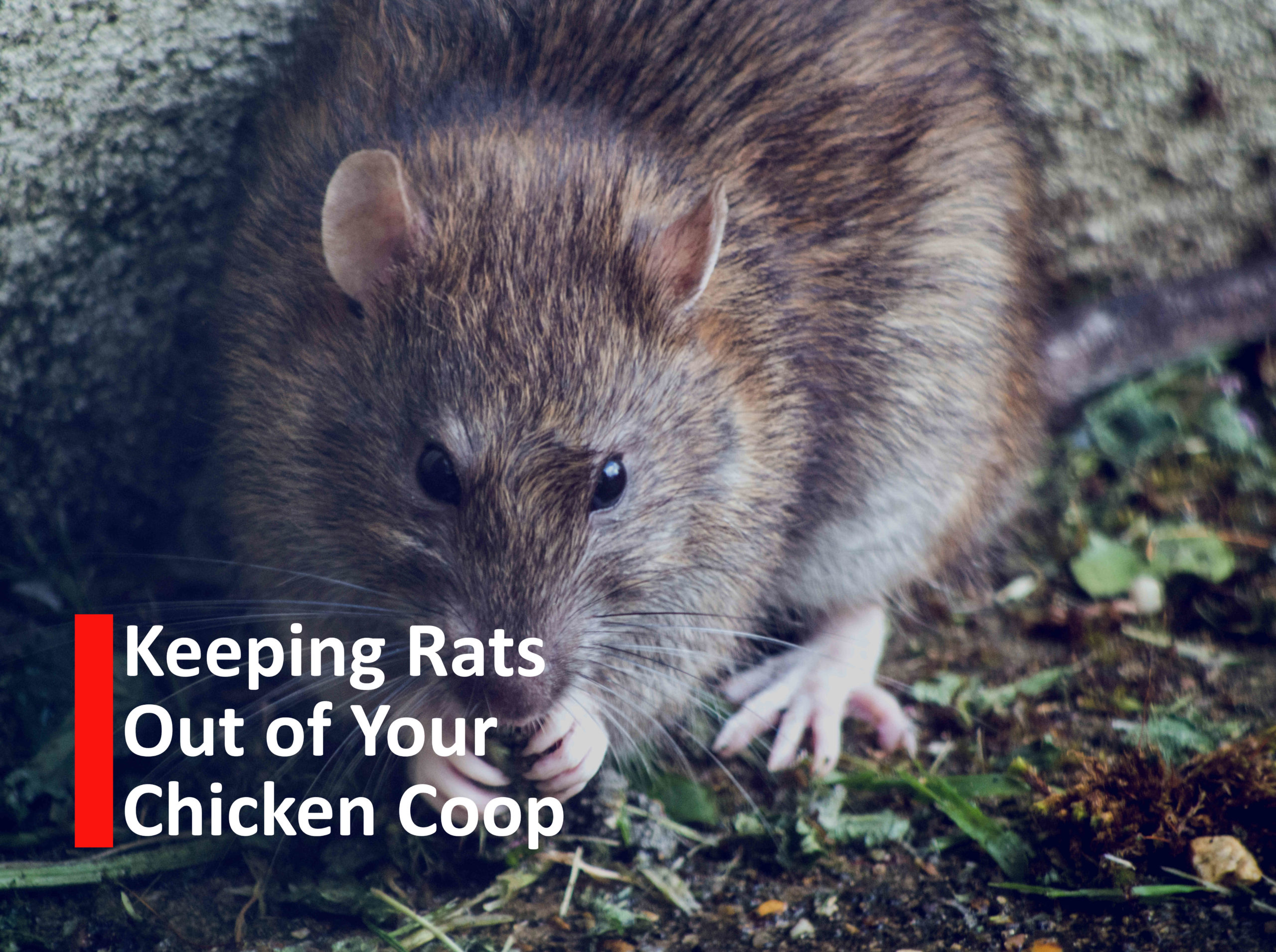Keeping mice and rats out of your chicken coop can seem impossible, especially after they’ve gotten established. Here are several tips to help you get them out, and keep them out.
Clean Feeding
Feed them only what they’re eating that day then clean up the excess. Rats don’t normally harass chickens. They’re after the feed. Rats need food, shelter, and water. Do your best to eliminate their access to those things. Close off holes and just clean around the chicken coop. We personally love using an automated feeder option, like a Deer Feeder for your chickens, but if you’ve got a rodent problem, you might need to pause that and wait until you solve that. If you have a wood pile close to the coop, you may also want to consider moving that away. Wood piles are often turned into rodent nests. If its right by the coop, its likely going to be a hotspot.
Feed Your Chickens Earlier in the Day
If you’re feeding your chickens later in the day, they might not have enough time to eat everything before they turn in for the night. Try feeding them earlier in the day, and see if they clean up a little better.
You also want to secure your feed for your chickens. We strongly recommend that you use a metal galvanized trash can with a lid for the feed. This will not only protect your feed from the elements, but it will also keep mice and rats out of the feed. If you eliminate all food sources, they’ll have to just move on.

Irish Spring Soap
Some claim to have had success with the Irish spring soap for rats. People often go this route when they’re trying to avoid poison. It’s a nontoxic, and it won’t hurt your chickens, but the effectiveness really depends on the taste of your particular rodents. The internet is split about 50/50 on the effectiveness of using Irish Spring Soap to repel mice or rats. From our research and testing on using Irish Spring Soap to repel mice or rats, it seems to just vary by location, and by the rodent. Give it a try, it’s a really inexpensive option.
Try Poison CAREFULLY
Be really careful with rat poison. Chickens can eat the poison, or they can actually eat the rats or mice after they’ve been poisoned, and that can also poison the chickens as well. If you do decide to use rat poison, use it with discretion. If you do decide to try poison, we recommend Just One Bite. It’s our go to rat or mouse poison.

Reinforce the Chicken Coop
Mice, rats, and rodents can be diggers. You can burry metal mesh like hardware cloth, or you can even make a chicken fort knox, and pour concrete sub walls to keep them out. This might sound like absurd overkill, but this type of reinforcement would keep out bigger predators as well. Mice and rats are harder to get rid of than keeping racoons out of your chicken coop, but its much more devastating when a fox, bobcat, or other predator gets into the hen house.
Another effective option is to get a raised chicken coop. It can be pricy to just go with a whole new coop, but raising the coop off the ground can help. It can be a bit pricy, but if you want to go that route, we did some research, and this is probably the best chicken coop available on Amazon. This option is pretty drastic though, so I would try some of these other ideas first.
Use Traps that Won’t Hurt the Chickens
The best type of trap we would recommend for rats or mice around chickens would be a bucket trap. Essentially, they climb on top, then fall through a trap door and drown. The hole is too small for all but the stupidest chickens to fall through, and even then, you don’t need the bucket completely full of water to do the job, so your chickens are safe. Other rat or mouse traps can harm your birds, but these bucket style traps are effective and livestock friendly. They’re also extremely durable, and you can just keep on reusing it. Additionally, these professionally made options funnel the critters, and block them in so they can’t jump out once the trap has been triggered. We recommend a smear of peanut butter as bait on the trap door. Mice and other rodents love it, and it doesn’t all come off when they go down the hole.

Get a Mouser (Dog or Cat)
Get a cat, or a dog that’s good at getting rid of rodents. Terriers are especially good for rats and mice. If you have tried poison, get rid of all of it before you bring in a cat or a dog. I would also wait a few days, and spray down the area as well before with a hose, just to be safe.
Keep Learning
Prepping is an ongoing venture. Because of this, we recommend that you subscribe to our bimonthly newsletter to keep prepping, emergency preparedness, and self reliance on your mind. We promise, we’re not spammy, which is why we only email you twice per month. We hope you think about being prepared more than twice per month, but our newsletter is a valuable resource to help you learn new things, and just to keep prepping on your mind. Right now you can also sign up for free. You can also follow our Facebook Page for regular articles and resources.

